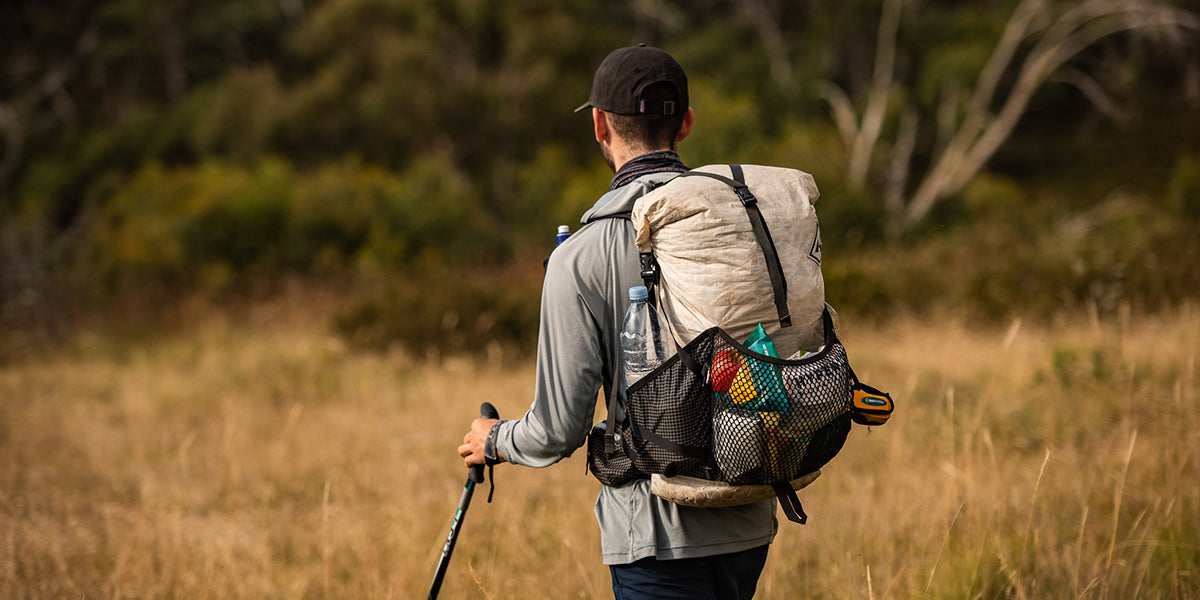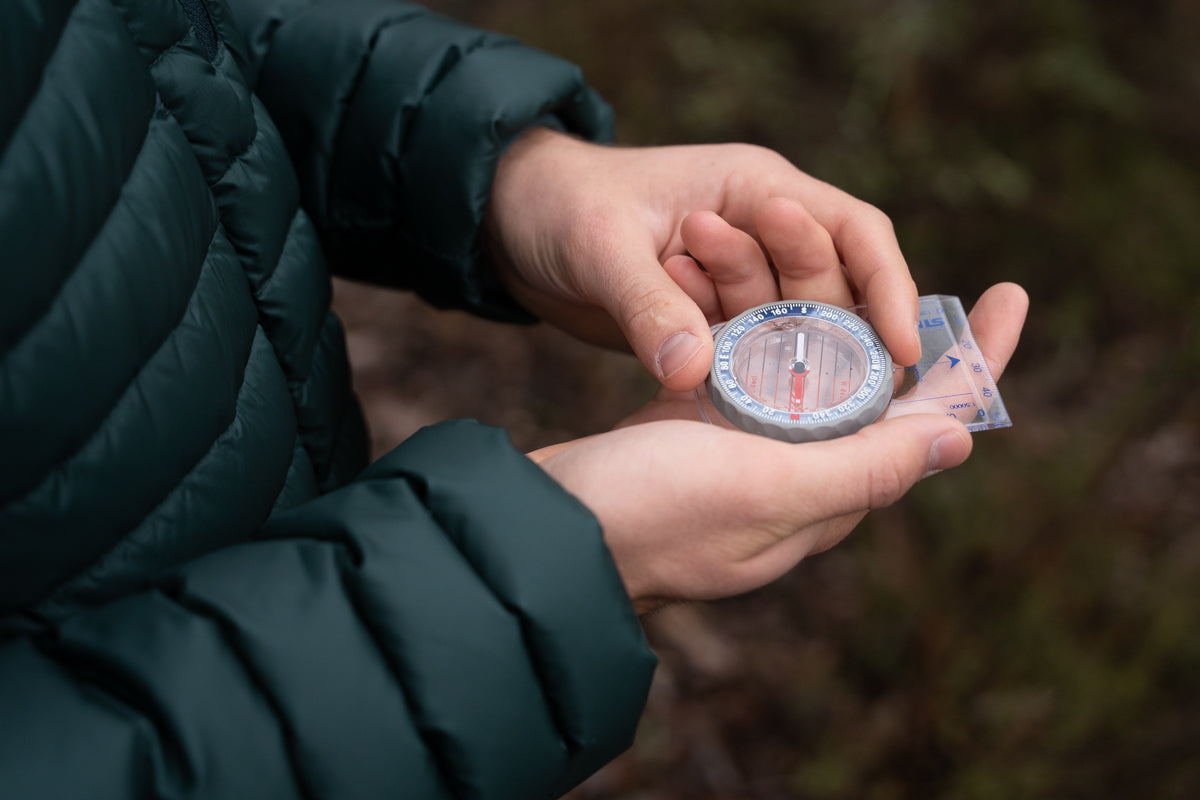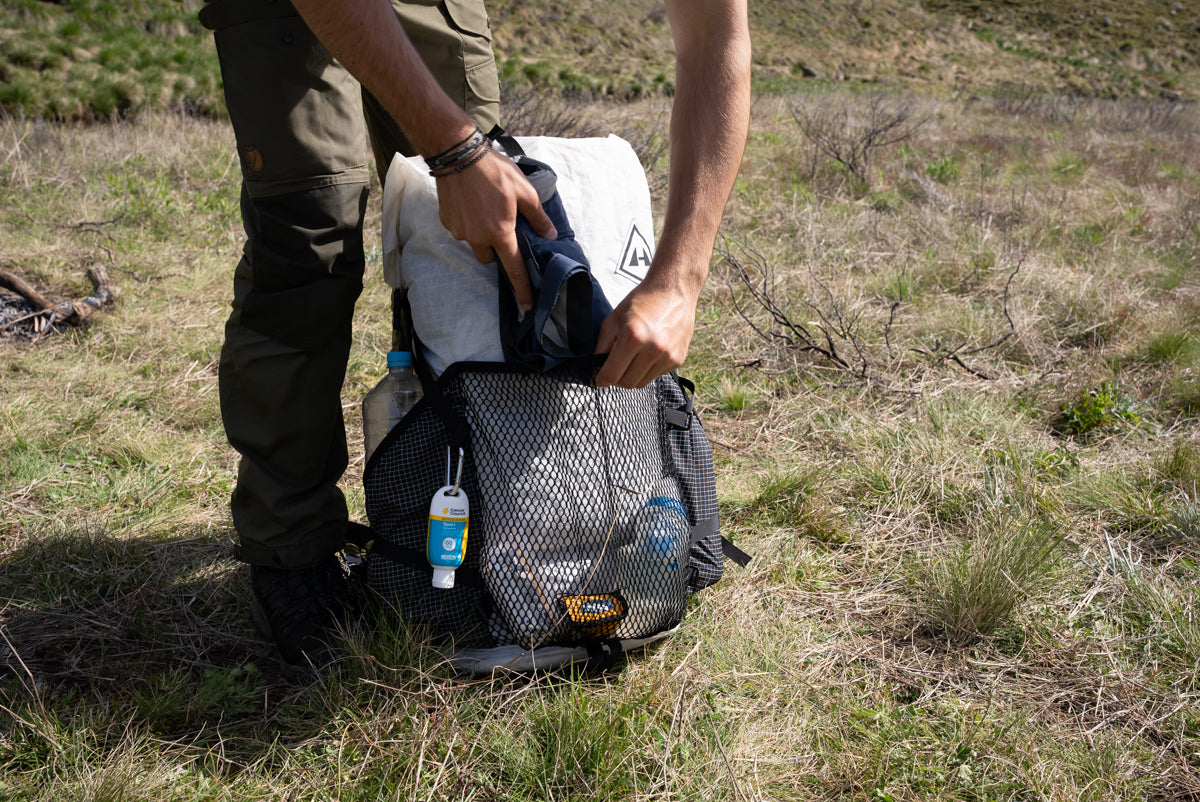
Essential Gear for Hiking
Whether you're planning a short day walk or a long multi-day thru-hike packing the right gear and the right amount of gear is crucial for an experience that's memorable for the right reasons. If you wanting to delve deep into nature on an overnight hike, read the guide on 'the big three' of hiking (pack, shelter and sleep systems). The guide below will help you plan other essential gear and accessories for overnight hiking and day walks.
Cooking System
A cooking system is what you will use to prepare each meal. You’ll want a small stove (alcohol/gas), fuel, a cooking pot for boiling water and a scourer to keep everything clean. Gas stoves are the popular choice for their quick boil times and convenience. Jetboil offers a number of stove systems that include everything you need to start cooking straight away, alternatively, you can purchase your stove and pot system separately to suit your needs best.
Stoves
Jetboil, MSR, and Soto are some of the best value hiking stoves available. Jetboil stoves are generally sold as an entire system (for example, stove, pot, cup etc. all as one unit) making them an easy and convenient option. Those looking for a more versatile, lightweight or customisable system can look at buying a Soto or MSR stove such as the Amicus or PocketRocket.
Pot
A durable, light and easy-to-clean pot system is key for simplifying your daily meals. Snow Peak pot systems and Trangia sets are two of the most popular for their reliability and ease of use.
Cleaning Gear
A few chucks or a little scourer should do the trick in most cases. A tea towel is also nice to keep everything dry. You can also wrap the cloth around your pot to keep it from rattling in your bag.
Hydration
It's important you filter any water you collect from creeks or rivers using a trail filter such as the Katadyn BeFree or MSR Trail Shot water filter.
In terms of water storage, you can’t go past the classic Nalgene water bottles which are inexpensive and built to last a lifetime. Camelbak bladders are also a good option for people who rehydrate constantly, though some find them a little more involved to refill than a water bottle. Find your style and run with it.

Clothing
The type of clothing will vary depending on the season but the core components remain the same on any hiking trip. Find a clothing layering guide here and a footwear guide here.
First Aid
There are risks associated with marching through the Australian bush for days on end. The most common threats are mild sprains, mozzie bites, and headaches. However, you should plan for the worst in case you have a run-in with any snakes, spiders, or breaks. Here’s a basic first aid kit for Australian bushwalks:
- Snake bandage
- Paracetamol
- Compression bandage for breaks/sprains,
- Antiseptic
- Sunscreen
- PLB – Hire information found here.

Navigation
Thanks to technology, GPS and mobile apps are a great way to navigate your way. These devices can show your exact location and intended route. If you plan on using electronic devices as your primary navigation tool make sure you can recharge when the battery gets low. Regardless of how confident you are with GPS navigation, a hard copy of a topographic map and compass is essential.

Organisation
Now you’ve got your gear sorted, it’s time to get organised. Dry bags/stuff sacks and carabiners will keep your gear separated and easily accessible. Your pack is essentially your home on the trail. Everything has a place in your pack and knowing where your gear is at all times will save you unpacking your gear every time you need to put on your rain jacket or grab a snack. Clip frequently used items such as sunscreen, GPS and water bottle to your pack’s exterior and separate items into different dry bags within your pack. Your sleep system/shelter, food, clothes, cooking system are usually a good starting point. Sea to Summit’s or Exped’s dry sacks allow you to colour code your equipment, with the added bonus of keeping gear dry if you take an unexpected plunge when crossing a stream.

Trekking Poles
While these are not essential to your walk, poles help you go further for longer. Trekking poles can take up to 15% of weight off your knees and feet, distributing the load more evenly across your whole body. Poles are particularly handy when ascending or descending as they provide stability and soften the impact on your joints.

Accessories
A buff is handy, these versatile pieces of cloth are a great addition to your kit. They keep the sun off your neck and face, can be worn as a beanie to add warmth on chilly nights and frosty mornings.
A good pair of sunglasses to keep the sun out of your eyes and reduce strain.
Gaiters keep grass seeds, dirt and bugs out of your boots while providing an extra layer of protection from snakes.
As a final note, remember that quality gear can make a world of difference when you’re relying on it each day. Research your purchases carefully to find the right equipment for your needs. Test your systems on day trips and over-nighters before attempting a long multi-day hike in its entirety, this will help ‘iron out’ the kinks in your systems and streamline your hiking experience.
Essentials for Day and Overnight Hikes
- Comfortable hiking pack
- Weatherproof jacket
- Hat and sunglasses
- Sunscreen
- Comfortable shoes
- Gaiters
- Water (1L per person for every 3 hours of walking)
- Calorie-dense food
- First aid kit
- Mobile phone
- Rubbish bag - leave no trace
- PLB (personal locator beacon)
Multi-Day Essentials
- Multi-day hiking pack (with rain cover)
- Tent/shelter
- Sleeping bag
- Sleeping mat
- Waterproof jacket
- Comfortable, quick-dry clothing (avoid denim and cotton)
- Spare socks
- Dry sacks
- Toilet paper
- Basic toiletries
- Hand sanitiser
- Baby wipes
- Map/compass
- Stove and fuel
- Lighter/matches
- Food (lightweight, high-calorie)
- Eating utensils
- Water bottles or bladder (2-3L)
- Water filter
- Head torch (and spare batteries)
- A way to charge your mobile phone
- Pocket knife or multi-tool
If you have any questions at all, or are not sure what products are best for your hiking kit please do send us an email through our contact form. We also love a chat, so you are more than welcome to give us a call (during business hours) on (02) 6947 4062.

